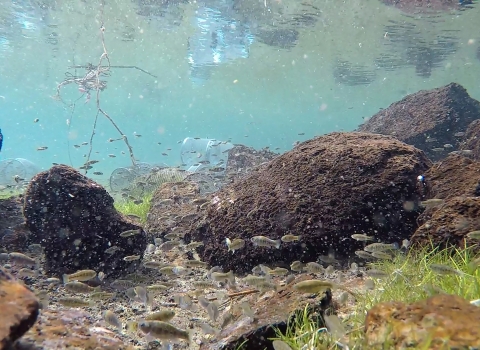Environmental injustices are fundamentally rooted in people living on borrowed time, and many have already run out of time. Simply put, saving lives should dictate a path forward that urgently reduces the destructive harms inflicted daily upon communities with little to no hope. Time consumed talking, making plans and processes, understanding definitions, and holding endless meetings are not the investments environmental justice (EJ) communities need.
With no shortage of meetings, plans, and processes, things seem to be improving and/or help seems to be arriving. But EJ advocates/communities wonder how much investments spent in these areas are turning into deliverables their communities can see for the betterment of their lives. In April 2023, the White House released an updated EJ definition that includes input from the public, and now is time to act on it.
Before Executive Order 12898 (1994) and additional orders steering the federal government to address and help eradicate environmental injustices, 1991’s Principles of Environmental Justice, a defining document created by grassroots organizations, offered a way to help those most in need. Even before that, in April 1968, the night before the assassination of Dr. Martin Luther King, Jr. he told a group of striking sanitation workers in Memphis, Tennessee: “We’ve got to give ourselves to this struggle until the end …” He believed exposing the need for economic equality and social justice would resonate nationally if not worldwide. The 1960s sounded the alarm about the public health dangers for communities of color, urban areas, rural areas, and economically impoverished Native American reservations. Through no fault of their own, frontline communities have been marginalized, disinvested, and disempowered. Now in 2024, can you hear them? Do you know them?
Today, we already know what important indicators show, that the impacts of climate change climate change
Climate change includes both global warming driven by human-induced emissions of greenhouse gases and the resulting large-scale shifts in weather patterns. Though there have been previous periods of climatic change, since the mid-20th century humans have had an unprecedented impact on Earth's climate system and caused change on a global scale.
Learn more about climate change , mounting harms from pollution, health crises, inequities, socioeconomic issues, and more are leaving people sick and worse. Saving lives is the most important mission on this planet. The U.S. Fish and Wildlife Service is responsible for conserving, protecting, and enhancing fish and wildlife and their habitats for the continuing benefit of the American people. If we do our job right, our conservation will do more than ensure a future for wildlife. It will save our fellow humans.
Meetings, plans, and processes have a purpose, so take what is already known through science, data collections, reports, and more importantly community-driven problem-solving partnerships and act. Communities’ outcries are painful.
Even after 60+ years, outcries for life are growing. Take inspiration from those executing solutions past and present. Anything less can slow down our progress.
Perspective by Kim Lambert, Environmental Justice Coordinator, U.S. Fish and Wildlife Service



